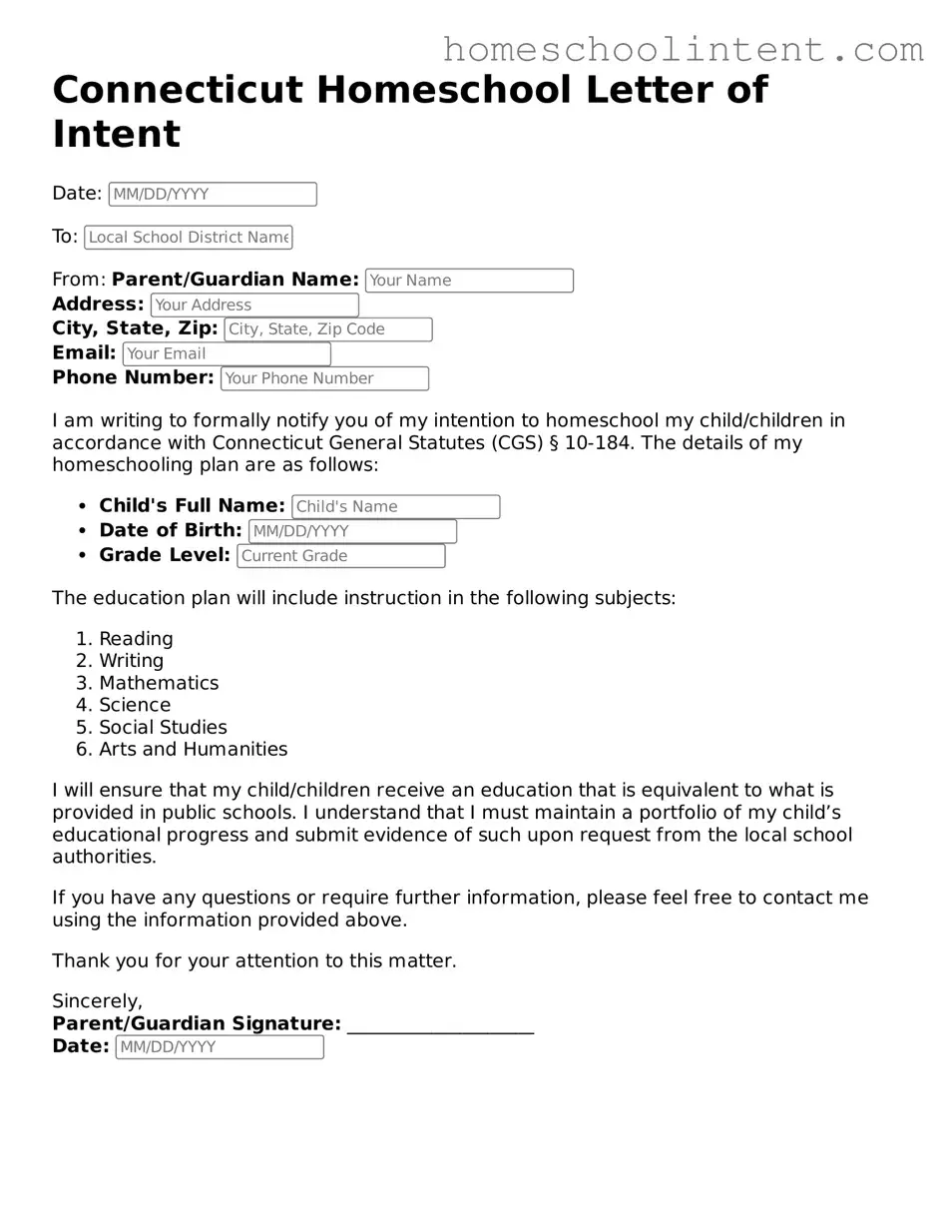Documents used along the form
When families decide to homeschool in Connecticut, they often need to submit several documents alongside the Homeschool Letter of Intent. These documents help ensure compliance with state regulations and provide a clear framework for the educational journey. Below is a list of common forms and documents that may be required or recommended.
- Educational Philosophy Statement: This document outlines the family's approach to education, including teaching methods and learning objectives. It helps to clarify the educational goals for the child.
- Curriculum Plan: A detailed outline of the subjects and materials that will be used throughout the school year. This plan serves as a roadmap for the educational experience.
- Attendance Records: Keeping track of the days and hours spent on educational activities is essential. These records can be helpful for both parents and any potential evaluations.
- Assessment Plan: A plan that describes how the child’s progress will be measured. This could include standardized tests, portfolios, or other forms of evaluation.
- Health Records: While not always mandatory, maintaining up-to-date health records can be beneficial. These may include immunization records or documentation of any special health needs.
- Emergency Contact Information: A document listing emergency contacts and medical information. This ensures that caregivers have access to crucial information in case of an emergency.
- Withdrawal Form from Public School: If the child was previously enrolled in public school, a formal withdrawal may be required. This document helps to officially end the child's enrollment.
- Record of Educational Activities: A log of daily or weekly educational activities, including field trips, lessons, and projects. This record can be useful for assessments and reviews.
Each of these documents plays a significant role in the homeschooling process in Connecticut. They not only help families stay organized but also ensure that educational standards are met. By preparing these forms, parents can create a comprehensive plan that supports their child's learning journey.
